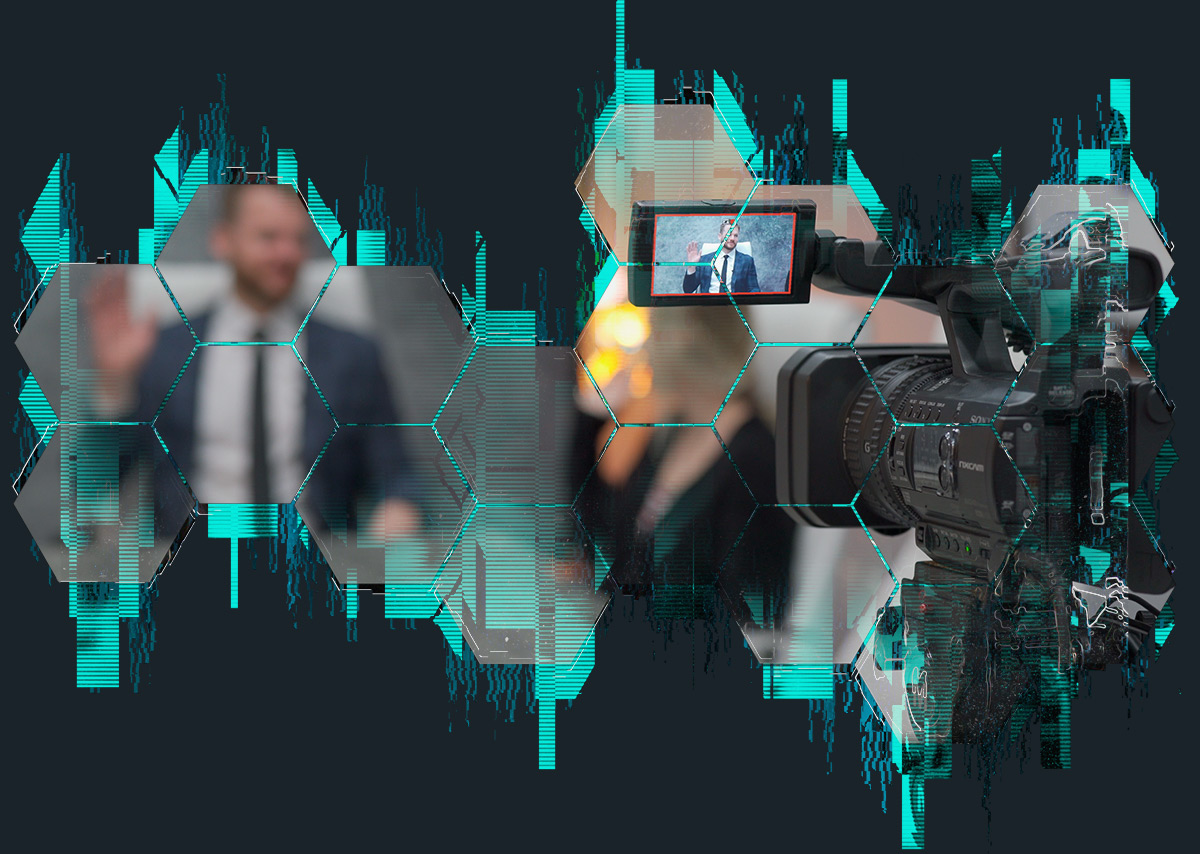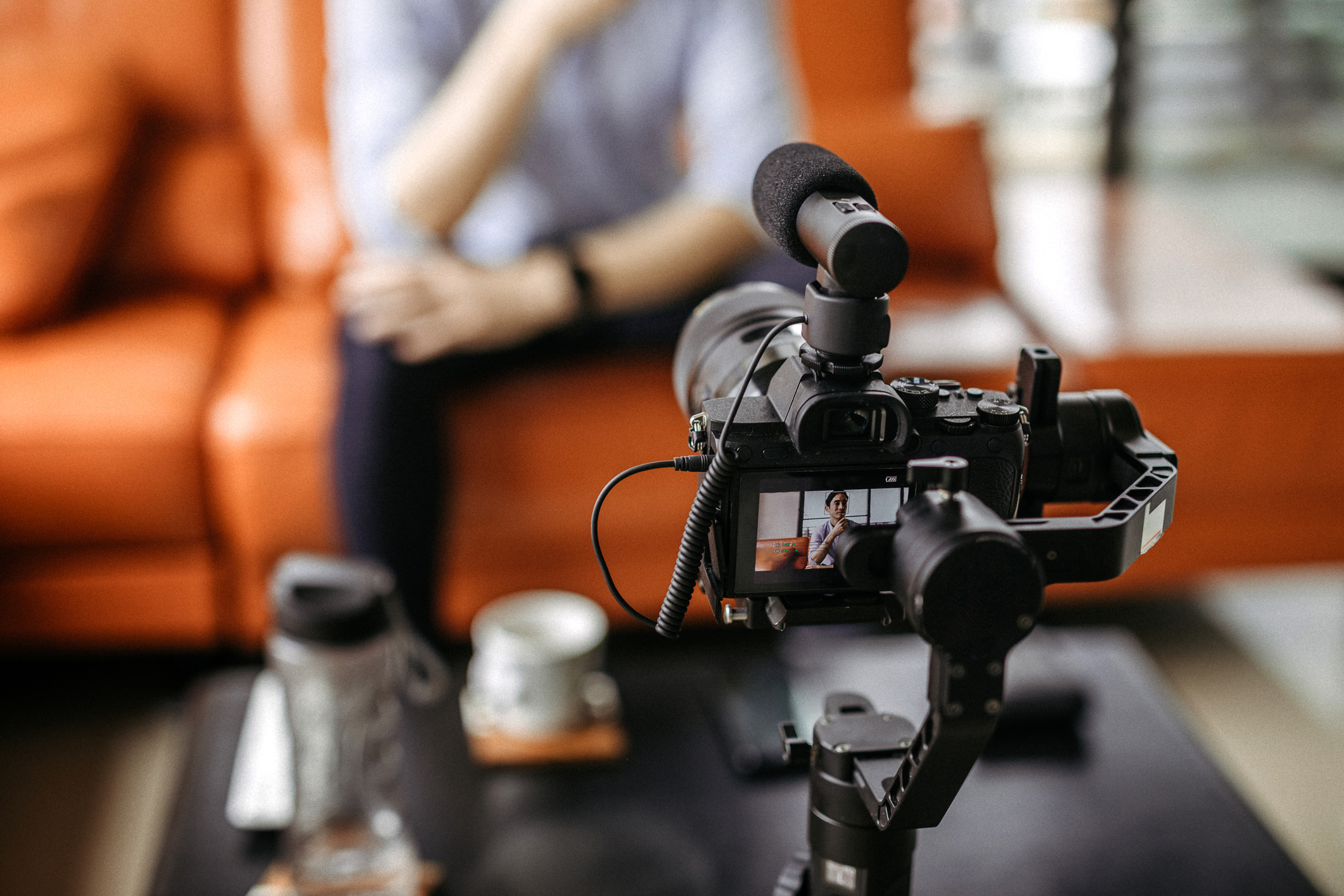The future of litigation: Why legal video depositions are here to stay
The Importance of Legal Video Clip Depositions in Modern Legal Services: What You Ought to Know
Lawful video depositions have become necessary in today's legal landscape. They supply a multidimensional view of witness statements that traditional records merely can not match. By capturing both verbal and non-verbal communication, these depositions enhance the general understanding of a witness's reputation. The performance of video depositions pivots on different variables, consisting of conformity with legal criteria and ideal practices. Checking out these elements discloses their true relevance in modern legal services
What Are Legal Video Depositions?
Legal video clip depositions function as a vital tool in the lawsuits process. They entail recording witness statements in a video clip format, capturing both non-verbal and spoken interaction. This approach permits lawyers to record the temperament, expressions, and responses of witnesses, supplying a richer context for the testimony. Usually performed in a controlled setting, these depositions are led by attorneys who ask inquiries while a stenotype reporter records the dialogue. The resulting video clip can be essential for trial prep work, as it makes it possible for attorneys to evaluate the trustworthiness of witnesses and improve their methods. In addition, legal video depositions can be used in different lawful contexts, varying from civil disputes to criminal situations. The auditory and visual components of video clip depositions enhance the presentation of proof, making it a vital part in the modern-day legal landscape. In general, they add significantly to the efficiency and effectiveness of legal proceedings.

Benefits of Video Clip Depositions Over Traditional Methods
Video clip depositions provide various advantages compared to standard approaches of taking witness testaments. One considerable advantage is the ability to catch both aesthetic and audio elements, offering a much more extensive document of the witness's statements. This twin style enhances clearness and allows attorneys to reference specific subtleties during trial prep work. Furthermore, video clip depositions assist in remote participation, making it simpler for witnesses who may be unavailable for in-person appearances due to geographical constraints or wellness issues.Moreover, video depositions can quicken the overall deposition procedure, decreasing the moment and costs connected with traveling and logistics. They additionally boost access, as tape-recorded depositions can be quickly shared amongst lawful teams and referenced at any kind of time. This ease adds to far better situation monitoring and prep work. Overall, video depositions stand for a contemporary, reliable approach to collecting witness statements, lining up with the progressing requirements of the lawful occupation.
The Function of Body Language and Tone in Testimonies

In lawful video depositions, body language and tone play important duties in communicating a witness's trustworthiness and credibility. Nonverbal cues can supply insights into a witness's mood, influencing exactly how their statement is viewed. Comprehending the influence of these components is necessary for jurors and attorneys alike when assessing the dependability of a testimony.
Nonverbal Interaction Insights
While spoken interaction is usually highlighted in legal testimonies, nonverbal signs such as body language and tone play an essential role in conveying credibility and feeling. Observers of depositions may note that a witness's stance, motions, and faces can significantly influence understandings of integrity. For example, consistent eye call might indicate confidence, while preventing gaze might suggest deceit or pain. The tone of voice-- its speed, pitch, and volume-- can pass on feelings of genuineness or unpredictability. Lawful experts need to be attuned to these nonverbal signals, as they frequently supply essential context that matches spoken words. Comprehending these nuances can enhance the performance of depositions and affect the end result of legal procedures.
Emotional Tone Effect
The psychological tone shared during legal testaments greatly influences how a witness is regarded. Body language, vocal inflections, and facial expressions play important duties fit the story of a testimony. A witness showing self-confidence with stable eye contact and a tranquil tone can impart a feeling of reliability and interaction. Alternatively, signs of anxiety, such as fidgeting or a shaky voice, may lead to hesitation regarding their account. The nuances of emotional expression can affect the interpretation of realities, making it important for attorneys to recognize these signs. In video depositions, the visual and acoustic components combine, stressing the importance of emotional tone in sharing sincerity and truthfulness within the lawful procedure.
Reputation and Dependability
An important factor in developing credibility and dependability during testimonies exists in the witness's body movement and tone of voice. Onlookers frequently rely upon non-verbal signs-- such as eye get in touch with, stance, and gestures-- to assess a witness's sincerity. A witness that preserves eye call and presents open body language may be regarded as more honest and reliable than one that prevents eye contact or shows up closed off. Additionally, tone of voice plays a crucial role; a constant, tranquil tone can reinforce the integrity of the statement, while changes in pitch or volume might raise doubts. Ultimately, the mix of body movement and vocal tone considerably affects how a witness's statements are gotten and analyzed in a lawful context.
Ideal Practices for Carrying Out Video Clip Depositions
Performing video clip depositions needs careful planning and implementation to guarantee a clear and reliable discussion of statement. Initially, it is essential to pick a peaceful, well-lit place to minimize diversions and secure optimal video clip high quality. The equipment ought to be checked ahead of time, including cameras, microphones, and lighting, to stay clear of technological concerns throughout the deposition.Next, events involved should examine the format and procedures ahead of time, seeing to it that everyone comprehends their functions. The deponent needs to be informed on the process, including just how to respond plainly and concisely.Additionally, preserving a professional attitude throughout the session is important. This includes avoiding visit here from talking over each other and confirming that all inquiries are guided appropriately. Finally, it is vital to record the deposition in a layout that enables easy playback and evaluation, protecting the integrity of the statement for future usage.
Lawful Considerations and Compliance Issues
Exactly how do lawful factors to consider and conformity issues impact the performance of video clip depositions? Attorneys have to navigate a complex landscape of regulations, making sure that video clip depositions comply with jurisdictional policies and standards. Conformity with regulations worrying privacy, permission, and recording methods is vital. Acquiring explicit authorization from all events included is needed to prevent lawful repercussions.Additionally, the admissibility of video proof in court can hinge on compliance with step-by-step demands. Ensuring that the devices made use of satisfies technological standards is likewise crucial, as low quality can weaken the deposition's reliability.Moreover, lawyers must know any type of specific state regulations that govern video clip depositions, as these can vary substantially. Failure to deal with these considerations can not only jeopardize the honesty of the deposition but additionally affect the total situation technique, inevitably impacting the client's legal results.
How Video Depositions Influence Court Assumption
While video depositions can offer as powerful tools in lawful process, their influence on jury perception is considerable. The auditory and aesthetic components of video recordings provide jurors with an extra thorough understanding of witness disposition, reliability, and emotional actions. This multimedia approach can boost the jurors' capacity to assess the dependability of statement contrasted to standard text-based transcripts.Moreover, video clip depositions enable jurors to observe body movement, tone of voice, and faces, all of which can influence their interpretation of the witness's statements. The existence of a witness on screen can humanize them, fostering compassion and connection, which may persuade jurors' point of views. Conversely, a witness who shows up untrustworthy or evasive on video might bring about negative perceptions that affect a jury's decision. Inevitably, the dynamic nature of video clip depositions plays a crucial role fit just how jurors analyze proof and reach their judgments.
The Future of Video Depositions in Legal Method
As innovations in innovation remain to improve the lawful landscape, the future of video clip depositions is positioned for significant development. Technologies such as expert system, virtual reality, and boosted video conferencing devices are expected to improve the deposition process and boost ease of access. Lawyers may utilize AI-driven analytics to examine witness credibility and situation toughness much more effectively.Moreover, the combination of online reality could enable juries to experience immersive simulations of depositions, giving deeper context and understanding. Additionally, the pattern toward remote depositions is likely to persist, supplying greater adaptability for customers and lawyers alike.As remote work becomes progressively stabilized, video depositions will likely become common practice, minimizing expenses and time constraints related to conventional approaches. On the whole, these technological advancements assure to boost the effectiveness, efficiency, and accessibility of video clip depositions in lawful method, inevitably changing just how attorneys prepare for trial.
Regularly Asked Concerns
How Much Do Lawful Video Depositions Normally Cost?

Can Video Depositions Be Made Use Of in Any Kind Of Kind Of Case?
Video depositions can be used in various sorts of cases, consisting of civil, criminal, and household law. Their adaptability enables attorneys to present witness testaments successfully, adapting to the particular demands of different legal situations.
What Tools Is Required for a Video Clip Deposition?
To carry out a video clip deposition, vital tools consists of a premium camera, microphone, lights, and a trusted recording gadget. Additionally, a computer with Clicking Here modifying software application might be required for post-production and formatting the last video.
For how long Does a Normal Video Clip Deposition Last?
A normal video deposition lasts between 2 to 4 hours, depending upon the complexity of the situation and the variety of concerns posed. Extensive sessions may happen, yet breaks are usually included for individual convenience.

Are Video Clip Depositions Admissible in Court?
Video clip depositions are usually admissible in court, supplied they stick to lawful standards and policies of evidence. Their usage boosts clarity and protects witness testimony, visit helping in the judicial procedure throughout tests and hearings. Legal video depositions have actually come to be necessary in today's legal landscape. Additionally, lawful video depositions can be made use of in various legal contexts, ranging from civil disagreements to criminal cases. In addition, video clip depositions help with remote participation, making it easier for witnesses that might be inaccessible for in-person looks due to geographical restrictions or health and wellness issues.Moreover, video depositions can expedite the total deposition procedure, reducing the time and costs associated with travel and logistics. Making certain that the equipment made use of fulfills technical requirements is also important, as poor quality can undermine the deposition's reliability.Moreover, attorneys must be mindful of any details state regulations that govern video depositions, as these can differ greatly. Furthermore, the pattern toward remote depositions is most likely to continue, using greater flexibility for attorneys and customers alike.As remote job ends up being significantly stabilized, video depositions will likely come to be common method, minimizing expenses and time restrictions linked with standard techniques.